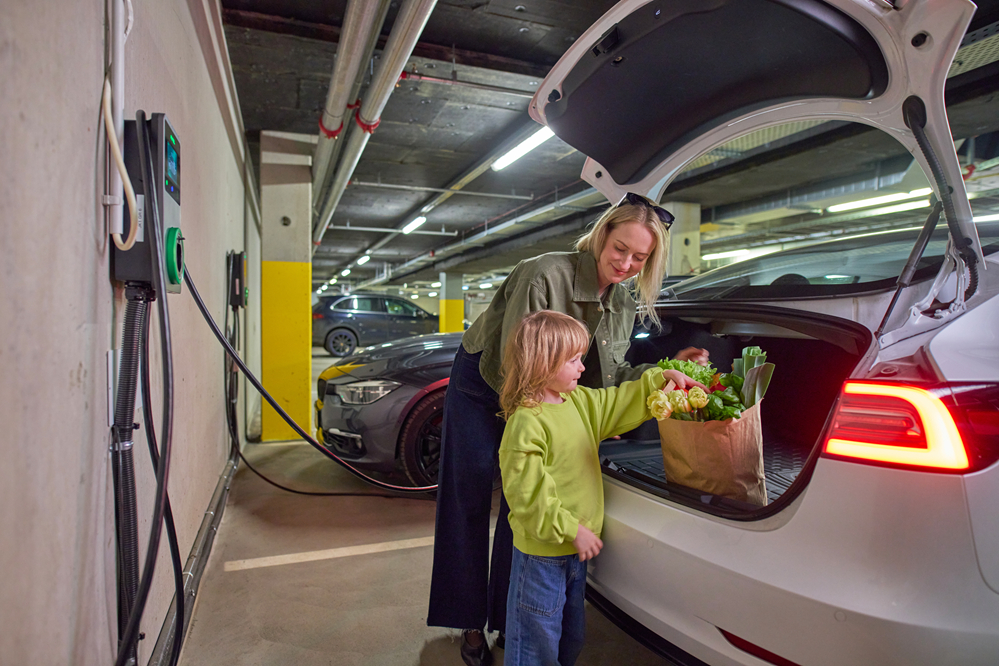Home socket or charging station: which electric car charging method saves more time and money?
Drivers who have chosen an environmentally friendly vehicle face the question of where to charge it. The best way to take advantage of the economy of an electric car is to charge it at home, paying according to the rates of your electricity package. However, it is important to decide whether to do this using a home socket or a dedicated charging station.
According to Julius Areška, head of the private customer department at Enefit in Lithuania, people still have prejudices and fears that delay the purchase of an electric car. For example, they worry about where to charge the car and how long it will take.
Home socket is affordable but keeps the electrical system under load for a long time
‘Charging electric cars directly from a socket is technically possible, but in practice, it is very inefficient. Depending on the capacity of the car’s battery, such charging takes at least 20 hours. No matter how infrequently we use the car, we are unlikely to accept a charging time that lasts an entire day and night,’ said Areška.
It is even more important to determine whether the home electrical system can withstand such a load. Charging uses all the available energy, which keeps the electrical line under heavy load for an extended period. If the home electrical system cannot handle the load, charging an electric car could result in a fire,’ noted Areška.
Charging station offers speed and safer charging
Special charging stations can solve both the speed and safety issues of charging. For private customers, the typical choice is a device with a power output of 11 kW or 22 kW. To calculate the charging speed, you need to divide the car’s battery capacity by the charging power. This means that an electric car with a 60 kWh battery, such as the Volkswagen ID.4, can be fully charged from empty in about 3 hours with a 22 kW station and in just over 5 hours with an 11 kW station.
Wall-mounted charging stations are usually space-saving and are equipped with overvoltage and overcurrent fuses. When the battery is fully charged, the charger automatically stops the charging process, so you can leave the car to charge overnight with peace of mind.
If you have a solar power plant, it is worth charging the car during the day, as this allows you to use electricity generated in real-time.
Smart app charges the battery during the most favorable hours
If a car owner has a home electricity contract based on exchange prices, they can also save money with the Enefit Volt smart charging app. The car owner connects the car to the charger, specifies in the app by what time the charging must be completed and how full the car battery should be. The smart solution charges the car battery during the hours with the lowest exchange prices within that time frame.
Wider adoption lowers prices
New technologies develop over time and become more efficient and cheaper. The number of electric car users and charging points is also increasing, which lowers the cost of equipment. Today, an 11 kW charging station for one electric car can be purchased for less than 800 euros. Instead of buying the charger, it can also be rented.
Until the end of September, Enefit offers 0% interest instalment payments for 12 months on an 11 kW home charger, and always ensures that all necessary documentation and installation are provided by an electrical expert. Read more here.
If you want more information or have any other questions, we will be happy to help. Please contact us at [email protected], call 777 3030, or leave a consultation request on our website.

